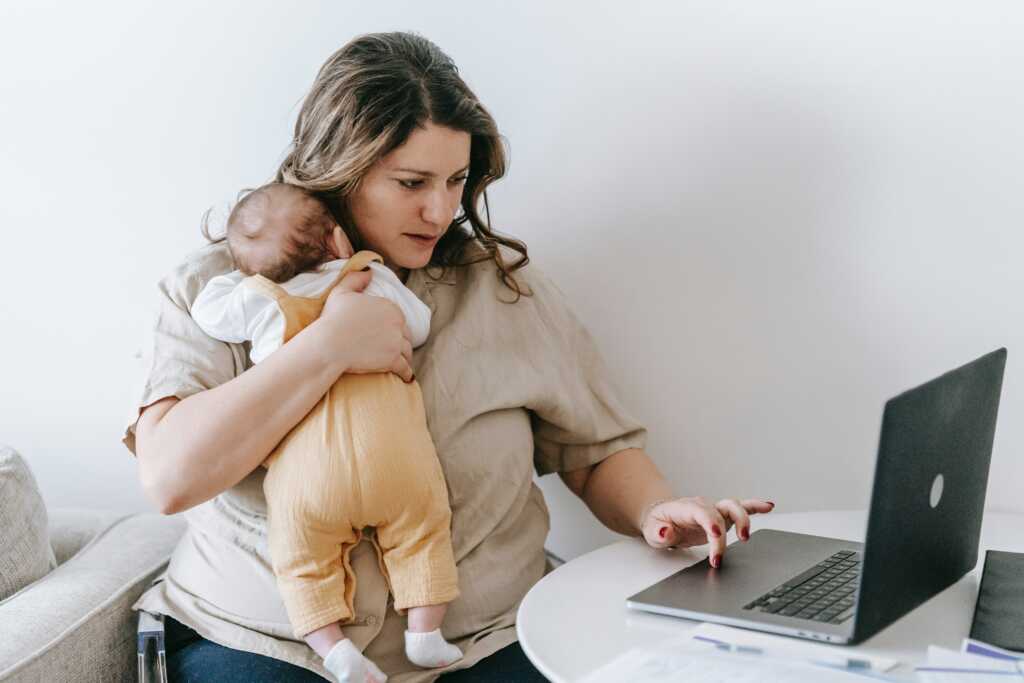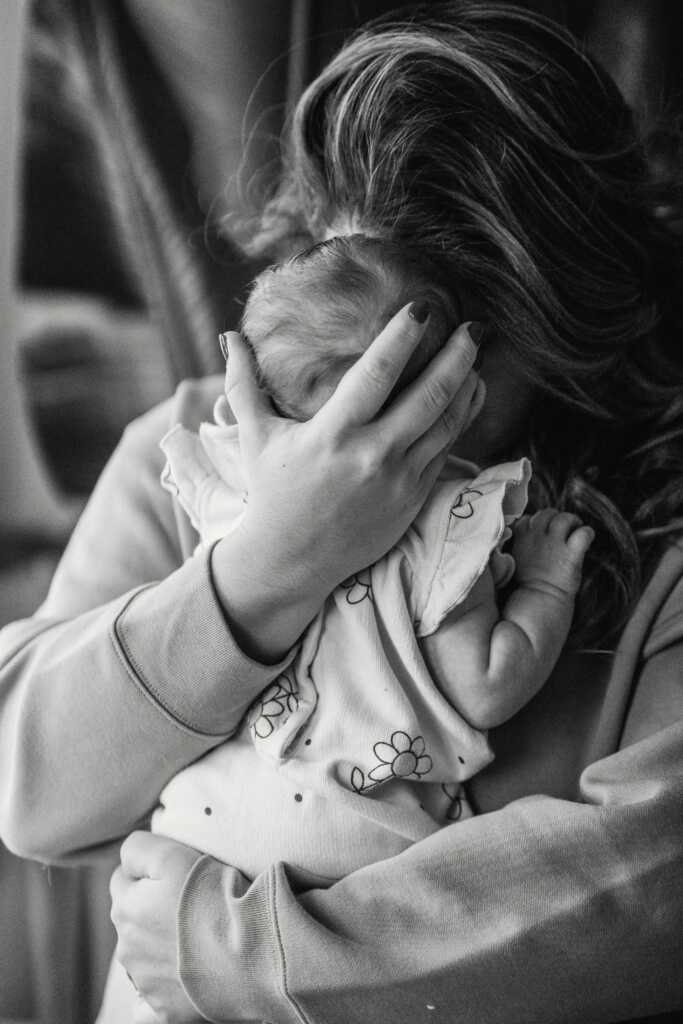Disclaimer: While the writer does hold a perinatal mental health certification and is a licensed therapist, this is informational and is not to be taken as medical advice. As always, talk to your health care provider.
I’ve heard it more times than I can count, “I don’t have postpartum.” The reasons are varied: Maybe she thinks it’s not that bad, or depression and anxiety are not something that is discussed in her family or her culture. Maybe there is a fear that she will be labeled, or that it’s just hormones or that she’s the only one who feels this way.
It seems we (women/society) have been conditioned to think pregnancy and mothering should always be sunshine and flowers and pure love. If we aren’t bathed in glowing light and overflowing with love and affection for a child / children, then we aren’t really mothers. It’s become all or nothing, black and white, and in reality there is so, so much in the middle, so much gray area. Mood disorders related to pregnancy are real, affect a lot of women, and, thankfully, are treatable.

Let’s Talk About It
According to the CDC the leading, preventable, cause of maternal death is a mental health condition.
Postpartum depression is real, it is a part of a larger subset of mood disorders often referred to as Perinatal Mood and Anxiety Disorders. Basically, anxiety disorders and/or depressive disorders that can occur both in pregnancy and/or in the postpartum period.
Postpartum refers to after delivery, but when it comes to our moods and emotions the postpartum period isn’t over after that 6 week check up, mental health-wise the “postpartum” period is considered to be one year following delivery. That’s right, a full year. Think about all of the hormonal and social changes that occur in that first year.
Let’s Talk Terms
Baby Blues: a VERY common experience that occurs after childbirth. Generally, baby blues will start a few days after delivery and can last about 2 weeks. Commonly people experience crying spells, a low mood, sleeplessness, decreased appetite and irritability. Often resolves on its own.
Perinatal Depression: symptoms can occur in pregnancy, right after delivery or at any point in the postpartum period. Women can experience depression, lack of motivation, crying spells, sleep changes, appetite changes, feeling like you shouldn’t have been a mother, anger/irritability, hopelessness, helplessness, worthlessness, trouble concentrating, thoughts of suicide or of harming your self or baby.
Perinatal Anxiety: anecdotally, this seems to occur a lot more than healthcare professionals and moms realize. Anxiety tends to look like excessive or all-consuming worry, nervousness, possibly panic attacks. Symptoms that are similar to those in depression include sleep changes, trouble relaxing, and being easily angered or irritated.
Perinatal Obsessive-Compulsive Disorder (OCD): In this disorder thoughts are intrusive and unwanted. They may cause alarm or concern because you don’t want to have the thoughts but you cannot stop them. Compulsions are tasks or things that must be done to get some relief from the intrusive thoughts. This falls under an anxiety disorder.
Perinatal Post-traumatic Stress: often occurs as a result of traumatic delivery, pregnancy, or trauma history. Symptoms can include flashbacks, loss of memories of delivery, or symptoms similar to anxiety.
Postpartum Psychosis: very rare, very serious, occurs suddenly. Requires immediate treatment by a physician. Often times the person with the disorder is not aware.
These are very brief descriptions of these conditions, for more in-depth information check out the Mayo Clinic, the Cleveland Clinic, ACOG, Massachusetts General, or the sites linked below. Not everyone will experience every symptom.

Getting Help
Mental Health Care is HEALTH CARE. Think of it this way, in pregnancy did/do you suffer through nausea and vomiting? Do you suffer through heartburn? High blood pressure? Why suffer through depression or anxiety? Talk to your doctor/midwife, have the conversation, discuss options for treatment.
Medication: Communication with your provider is key. Yes, there are things you can take in pregnancy, yes there are things you can take while breastfeeding. Talk about your concerns and the risk/benefit of medication vs a mom with depression/anxiety. For fact-based information, these sites are research based: Mother to baby and/or The MGH Center for Women’s Mental Health.
National Maternal Mental Health Hotline: 1-833-9-HELP4MOMS (1-833-943-5746) Available in English and Spanish, call or text, free, confidential, 24/7
Postpartum Support International provides support to pregnant and postpartum mothers, fathers, parents. They offer over 30 specialty online support groups as well as a help line.
Counseling/Talk Therapy– Talk to your OB/GYN or PCP they may have a list of therapists or recommended referrals. If possible find a therapist who is a PMH-C (Perinatal Mental Health Certified). We are lucky to have several in Baton Rouge. Group therapy can also be beneficial.


We seem to conflate the idea of postpartum depression with the worst of the worst case scenarios. The salacious news stories filled with the trauma and pain of women suffering from postpartum mood disorders. All labeled as “depression.” In reality, there is so much more happening to women in pregnancy and postpartum, and there is no shame in talking about it and getting help.
















